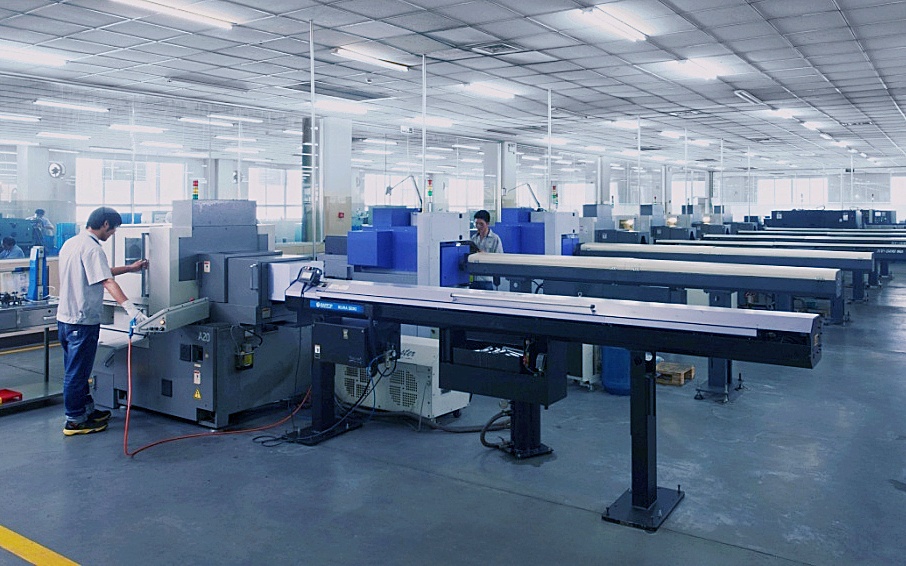CNC Swiss Lathe Machining: Uses and Applications

For precision machining applications, manufacturers use a range of CNC machines to make simple and complex parts. Typical machines that customers hear about include milling machines, grinding machines, and lathes. Many CNC machine tools operate by having a stationary workpiece as the cutting tools rotate around it to remove the materials until the finished part is made. For the case of a CNC lathe, the mounted part rotates as the cutting tools work along the length of the workpiece.
A machine getting more attention across several industries is the Swiss lathe machine. Companies in medical and electronics have used this machine to produce parts quickly. Yet now more industries are recognizing the benefits of a CNC Swiss lathe machine for their parts production.
What is a Swiss Lathe?
A Swiss lathe has an extra function to a traditional lathe. It rotates the mounted workpiece and also slides the workpiece laterally along the Z-axis through the guide bushing. Instead of the whole entire workpiece being exposed to the cutting tools, only a piece of the workpiece is tooled as it advances through the guide bushing.
The main advantage of this setup is that the cutting tools could work on the part close to where the workpiece is supported by the bushing. The Swiss lathe offers less deflection to long and narrow parts due to this added support right where the tool operates, increasing accuracy and repeatability. Manufactured parts from a Swiss lathe can have a length-to-width ratio of 20:1 and small diameters of under 0.125″.
Applications and Uses for Swiss Lathes
CNC Swiss lathes perform milling, drilling, knurling, turning, and boring processes. Numerous tools and several axes (up to 13-axes) may be used to complete the part. In addition, operators may feed numerous workpieces through the feed along the automatic bar loaders during production runs.
These machines were first used in the making of watch parts. Now, companies in defense, medical, aerospace, electronics and many others find amazing benefits with this machine. Types of parts produced by a Swiss lathe include:
- hydraulic valve parts
- medical implants
- miniature electronic connectors
- watch parts
- shafts
- musical instrument posts
The advantages of using a Swiss lathe to produce parts are numerous. These machines reduce deflection in long and thin parts to increase accuracy and reduce cycle times. It can perform both milling and turning for more versatility. A machine may have as many as 28 tools mounted on it at one time to provide single-process machining.
The Swiss lathe also can work on small and complex part designs. When using smaller bar stock, the Swiss lathe machine reduces material waste and provides more cost savings to customers.
For customers looking for parts that are small, thin, or long in length, a CNC Swiss lathe machine proves to be a viable precision machining option. This high-performance machine provides dimensional accuracy and repeatability to complex parts. For more information about Swiss lathe machines and how we use these tools in our operations, contact Impro today.